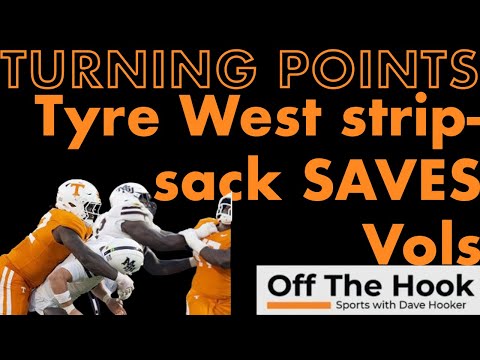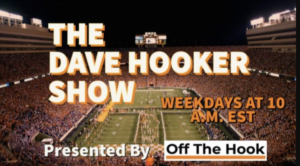Tennessee athletic director Danny White defended his usage of the term “talent fee” when he decided to raise football ticket prices last month.
During an appearance on WNML, White said the response from the Vols’ fan base has been positive. Under White’s leadership, Tennessee announced a 14.5-percent increase on football tickets, which consists of 10-percent increase on all ticket invoices and a 4.5-percent increase on football tickets specifically.
“The talent fee has gone over really well, as well as you could hope for,” White said on Wednesday. “We never like to raise prices, but just looking at the data, we have, I think, less than 300 responses (that inquired about the new fees) on our outreach to season-ticket holders compared to a price increase we did a couple of years ago, there was about 3,000.”
Per Tennessee media relations, those “touch points” to Tennessee’s development office could be of “any nature, positive, negative, etc.” in the last month.
“So I think our fans get it, is what that information tells me,” White said. “They understand the circumstances we’re in. We’re not asking them to take the whole load, in terms of the new financial burden. We’re asking them to participate in it and they’re doing that.
“Renewals are going really good. We’re grateful, as always, for all of our fans’ support, our season ticket holders’ support, but we still have a lot of work to do. The athletic department is going to look at all our expenses, where we can trim and be more efficient to meet this new financial goal and where we can add revenue in other areas as well.”
Tennessee and every school will have to adapt, likely within the next year, to a profit-sharing bill that is expected to be approved by Congress in the coming months. That would essentially eliminate NIL collectives and bring the concept of paying players in-house.
“College sports is changing rapidly,” White said. “Part of my role is to understand and help lead where possible with what’s happening on the national landscape, but resources going to student athletes is a great thing.
“We embrace that. I know our fans embrace that. I think because of the size of our fan base, it could be a huge competitive advantage for us. The platform that our student athletes get is better than anyone in the country.”
White, like any athletic director, would like to avoid what happened at UNLV this season when a handful of players alleged they were promised NIL payments that never came to pass. The players then announced they would redshirt this season and transfer upon season’s end.
“I don’t know the details of what happened out there and who’s right and who’s wrong, but I know enough about the set of circumstances we’re in to know all things could be true,” White said when asked about the UNLV situation. “We’re operating in a space where we haven’t clearly outlined what the direction is.
“We have rules against things being written down on paper, which I think creates even more uncertainty. We have runners and agents and people, maybe, without the best intentions at times taking advantage of the ambiguity and the gray area. It’s not a healthy environment right now. The young people deserve better.”
Per White, so do college coaches, who are often put in the middle of a negotiation that they have little say in, due to current laws that can vary state to state.
“Our coaches deserve better,” White said. “Our coaches are being put in a really difficult spot in terms of their own personal integrity, making sure that what they’re saying is fair and honest and allow them to say what the kids need to know to make decisions. Hopefully, we’re towards the end of all this ambiguity and grey area and we can get a smarter and more sensible path in this next chapter.”
White was quick to point out that Tennessee’s fan base is well adept at paying the extra toll.
“This is America’s college sports city,” White said. “We adopted that moniker for a reason. College sports matters more in Knoxville and East Tennessee than anywhere else in America.”
So does the money to fund it.









